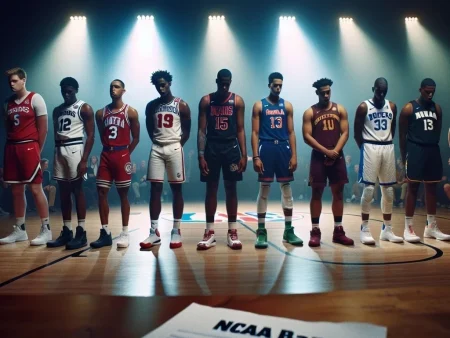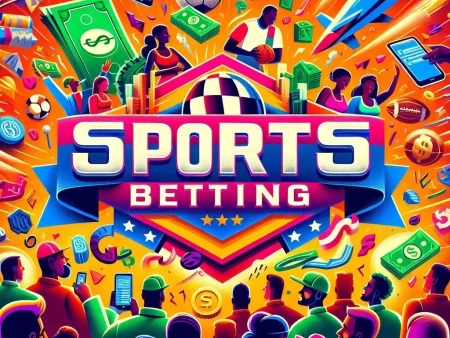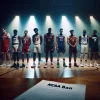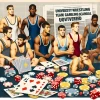Discover why Arkansas lawmakers turned down NIL raffles, impacting the future of student-athlete compensation. Dive into the evolving college sports landscape.
Arkansas Lawmakers Reject NIL Raffle Proposal in College Sports Debate
Wellcome Offer:
200% up to $2,000
+ 100 Free Spins
The winnings from your free spins will be credited as bonus funds. Exclusively available for new players with fair wagering requirements.
Wellcome Offer:
250% Bonus up to $5,000
+ 100 Free Spins
Claim your bonus and spin your way to big wins! Minimum deposit of $20 required. Wagering requirements apply. Bonus valid for 30 days.
Get up to:
100% up to $1,000
+ 300 Free Spins
You need to deposit at least $25 to be eligible for this bonus. The maximum amount of money you can withdraw from this bonus is limited to $20,000 or 10-times.
Welcome Package:
500% up to $5,000
+ 250% on your 2nd and 3rd deposits
This welcome package rewards new players across their first three deposits. A minimum deposit of $25 applies, with a wagering requirement of 60x before withdrawals.
Wellcome Offer:
250% up to $1,500
+ 100 free spins
Whether you prefer generous deposit bonuses or a bundle of free spins, Cafe Casino’s welcome offer has everything you need to enhance your gaming adventure.
Wellcome Offer:
500% bonus up to $7,500
+ 150 free spins
If you're after big deposit bonuses or a load of free spins, Ducky Luck Casino’s welcome package sets the stage for an exciting gaming adventure.
Welcome Offer:
200% up to $2,000
+ 100 Free Spins
This welcome package combines a deposit match with free spins, giving new players a powerful way to kick off their VoltageBet journey.
Wellcome Offer:
200% up to $1,000
+ 30 free spins
Lovers of slot games and those looking to boost their deposit will find Slots LV Casino’s welcome offer the perfect way to jumpstart their gaming journey.
Wellcome Offer:
200% up to $500
+ Free Spins
Terms typically include standard wagering requirements and a limited validity period. Offers vary by deposit method and player eligibility.
Wellcome Offer:
250% up to $1,500
+ 50 Free Spins
All winnings from free spins are credited as bonus funds, with fair wagering requirements. Exclusive to new players.
In a recent session, Arkansas lawmakers have made a significant decision regarding the evolving landscape of college sports. The rejection of proposed legislation allowing universities to conduct Name, Image, and Likeness (NIL) raffles marks a pivotal moment in the ongoing debate about student-athlete compensation and compliance with sports law.
The Context of NIL in College Sports
The concept of NIL has dramatically reshaped college athletics, allowing student-athletes to receive compensation for endorsements, sponsorships, and other opportunities previously restricted under the guise of amateurism. Educational institutions across the United States are grappling with how to implement policies that align with both state and federal regulations while maintaining fairness and compliance.
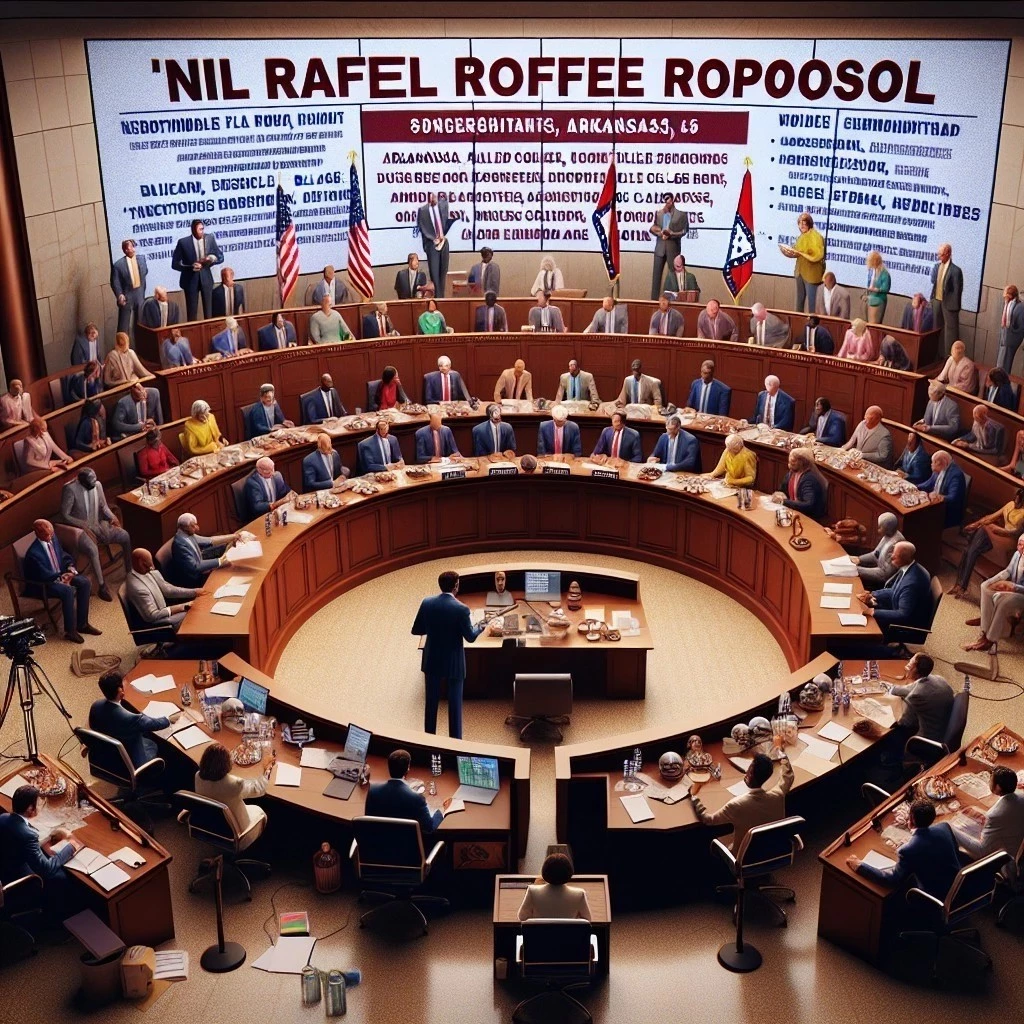
Proposed NIL Raffle Legislation
The rejected proposal sought to permit universities in Arkansas to engage in NIL raffles as a form of fundraising. The idea was to allow student-athletes to leverage their personal brands in a manner that could also benefit their institutions financially. Proponents argued this could be a creative avenue for generating revenue while providing student-athletes with additional compensation opportunities.
Reasons for Rejection
- Regulation Concerns: Lawmakers expressed concerns about the regulatory framework necessary to oversee such raffles. Ensuring compliance with existing sports law and preventing potential abuses was deemed too complex.
- Amateurism Issues: The introduction of raffles was viewed as potentially undermining the principle of amateurism that underpins college sports, raising questions about the true nature of student-athlete participation.
- Sponsorship and Endorsement Complexity: The intertwining of raffles with sponsorship deals could blur the lines of permissible activities under NIL agreements, leading to potential conflicts of interest.
Impact on Universities and Student-Athletes
The rejection of the NIL raffle proposal leaves universities to explore alternative fundraising strategies that align with current regulations. Student-athletes, meanwhile, must navigate the existing NIL compensation landscape without this particular avenue for monetization.
Future of NIL Legislation
As NIL continues to evolve, Arkansas lawmakers and educational institutions will need to remain vigilant in adapting policies that support student-athletes while ensuring regulatory compliance. The conversation surrounding NIL is far from over, and future legislative sessions are likely to revisit similar proposals as the college sports ecosystem continues to change.










